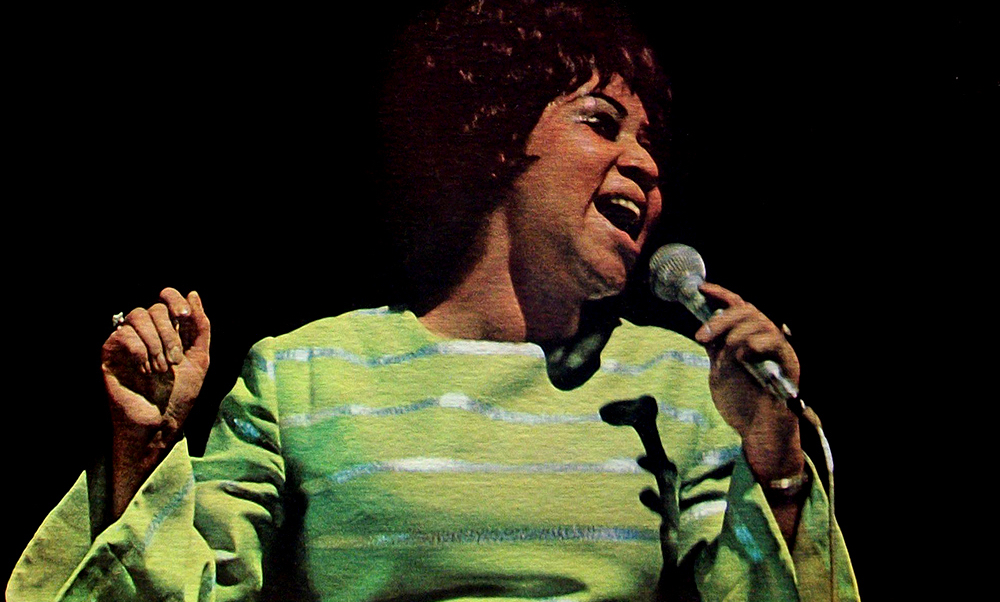Growing up in a black, middle-class Detroit household during the tail end of the twentieth century meant considering Aretha Franklin as family. Her triumphs were our triumphs, and we wore her tragedies just as heavily. Not in a condescending or pat way, but a genuine concern that encompassed the myriad complexities of a familial relationship—which is to say that Miss Ree-Ree was not beyond reproach. She would get dressed down around the dinner table if someone thought she stepped out of line, followed by the rest of the table shouting the person down in her defense. You know: family.
As a child, I honestly thought she was just a distant aunt who never visited, a revelation that amused my older sister to no end as she explained that Aretha Franklin was part of a bigger family that we were a part of. It was a lot to try to understand at the time, but it all makes perfect sense now. Aretha Franklin has always been the embodiment of Detroit, and a shining reflection of the 1960s Civil Rights Movement in action. Young, gifted, and black, the singer was a representation of the hopes and dreams of the then-emerging African-American middle class so ready and eager to finally touch the American Dream.
Throughout the ’70s, stories of encountering the Queen of Soul on the streets of Detroit were legendary. Telephones around town would light up with the latest Franklin sighting at a show or restaurant, and with how she always took the time for a kind word or easy laugh, gracious when laden with accolades for a recent accomplishment. The Aretha Franklin we knew and cherished in the city of Detroit is the one being celebrated this week—beyond the endless accolades and awards, her legacy is about those little moments, those details that reminded the world that, despite it all, she was forever a sassy girl from the streets of the Motor City.
It’s the Aretha who publicly defied her famous and influential pastor father, Reverend C. L. Franklin, to support back power activist Angela Davis in 1970. Before that, she helped fund Dr. Martin Luther King Jr. during his crusades across America.
Beyond the endless accolades and awards, Franklin’s legacy is about those details that reminded the world that, despite it all, she was forever a sassy girl from the streets of Detroit.
“When Dr. King was alive, several times she helped us make payroll,” the Reverend Jesse Jackson told the Detroit Free Press after her passing this Thursday at the age of seventy-six. “On one occasion, we took an eleven-city tour with her as Aretha Franklin and Harry Belafonte…and they put gas in the vans. She did eleven concerts for free and hosted us at her home and did a fundraiser for my campaign. Aretha has always been a very socially conscious artist, an inspiration, not just an entertainer. She has shared her points of view from the stage for challenged people, to register to vote, to stand up for decency.”
Of course, it was Franklin’s transcendental talent that drove it all. Her ability to transform any song into a prayer—a cry for help, a declaration of love, the expression of the deepest and most profound grief, into her own—was unparalleled. She embodied lyrics and melodies so brilliantly that her voice was heard and felt by everyone—from the people on the streets of Detroit who rode with her as she walked through hallowed spaces around the world to the dignitaries, celebrities, and fellow artists who are singing her praises in eulogy this week.
The power of Aretha Franklin touched the furthest reaches of space, with NASA sharing condolences, noting than an asteroid had just been named after the Queen of Soul. There was even a message from the moon itself.
From Detroit to the moon. That sounds about right for Aretha Franklin. FL









